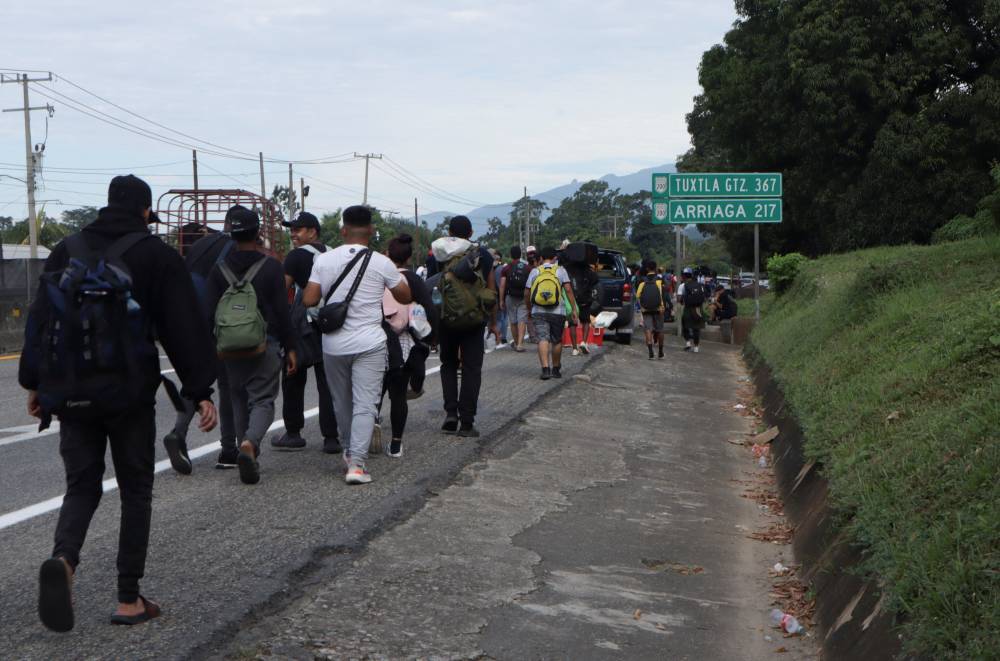Scared to stay in Mexico, some migrants look to return home

Every day, Nidia Montenegro spends hours checking her cellphone, hoping to receive a long-awaited appointment with US border officials to seek asylum in the United States.
The 52-year-old Venezuelan migrant in Mexico says she fears her appointment will not come before President-elect Donald Trump takes office on Jan. 20, when he has vowed to scrap a slew of programs that have allowed migrants to enter the US legally — including the government app that Montenegro is using to try and get her appointment.
That could leave thousands of migrants like Montenegro in limbo and facing the choice of trying to cross into the US illegally, staying in Mexico, or returning home.
Given those options, Montenegro says she would return home, more fearful of the violence she has encountered while traveling through Mexico than the hardship she left behind in Venezuela.
“I am traumatized. If I don’t get the appointment, I will go back,” she said, disheartened.
“There is always the threat of cartels that kidnap us,” added the woman, who says despite thinking about returning home she does not have the money to do so.
Hard choices
A dozen migrants interviewed in Mexico by Reuters said they would prefer to return to their countries despite the ongoing issues that drove them to migrate, such as poverty, lack of employment, insecurity, and political crises.
That is too small a sample size to draw clear conclusions of how migrants will react after Trump takes office, and much will depend on exactly what policies he implements and how.
But it does highlight the hard choices likely to face many after Jan. 20.
The violence in Mexico weighs heavily on any decision.
Montenegro told Reuters she was kidnapped along with two nephews and dozens of others, including children, on the day she arrived in southern Mexico from Guatemala two months ago. Two days later, the group managed to escape.
Added risks
Now she lives confined in a shelter in the southern state of Chiapas, fearing criminals in the area will kidnap her again.
Organized crime has established extensive human trafficking networks across Mexico, making the journey north through the country treacherous. Mexico is plagued by violence, with around 30,000 people murdered a year and over 100,000 people officially registered as missing.
Many migrants are extorted, beaten, raped, forced to commit crimes, and even killed. Mexican government attempts to slow the arrival of migrants at the US border, by busing and flying non-Mexican migrants to the country’s south, add to the risk.
The International Organization for Migration told Reuters that in the last seven years, it has assisted several thousand migrants — especially Central Americans — return voluntarily from Mexico to their home countries, including victims of violence. However, it declined to provide specific figures.
Reuters, the news and media division of Thomson Reuters, is the world’s largest multimedia news provider, reaching billions of people worldwide every day. Reuters provides business, financial, national and international news to professionals via desktop terminals, the world's media organizations, industry events and directly to consumers.

















